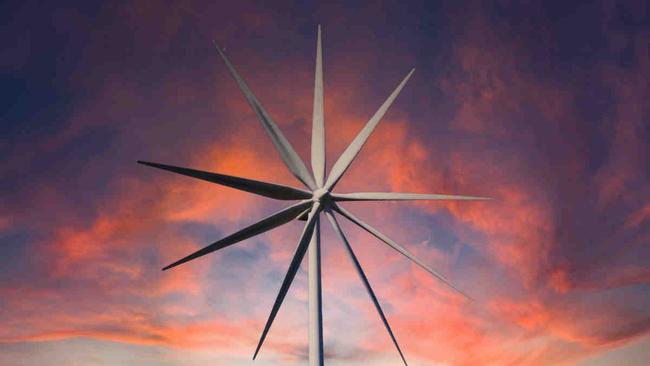The Ethical Investor: Clean energy’s moving, but can we speed it up before it’s too late?
Clean energy is moving ahead, believe experts, but with key tech still in diapers, hitting ultimate climate goals is no sure thing.

Stockhead
Don't miss out on the headlines from Stockhead. Followed categories will be added to My News.
Global energy shift faces serious challenges
Clean energy progress not fast enough to meet climate goals
Key decarbonisation technologies still in early development
The global shift to clean energy is moving at full throttle, but it’s facing some serious headwinds.
As we roll into 2025, a Global Energy Perspective 2024 report by McKinsey lays out a snapshot of where we stand today, and what’s getting in the way to meet our climate targets.
A step in the right direction, but not fast enough
The good news is that the energy transition is well underway.
Since the Paris Agreement in 2015, countries and companies have ramped up efforts to reduce carbon emissions.
However, despite these efforts global emissions are still expected to exceed the 1.5°C target by the end of the century, the report warns.
“Our analysis shows global emissions to 2050 remaining above a 1.5° pathway – even if all countries deliver on current commitments,” McKinsey said.
Although clean energy sectors like solar power and electric vehicles (EVs) are making progress, emissions are still expected to rise for the next decade before beginning to fall."
The issue?
Fossil fuels are still deeply embedded in the global energy system, and demand for energy – especially in emerging economies – is growing faster than expected.
The shift to electricity
One of the biggest drivers of the energy transition is electrification.
McKinsey predicts that global electricity consumption could more than double by 2050, particularly in sectors like transport, data centres, and green hydrogen.
“Electricity is projected to become the largest source of energy by 2050 across scenarios,” according to McKinsey.
This is especially true in emerging economies, where populations are growing, and more people are moving into the middle class, creating a spike in energy demand.
But there’s a catch.
As electricity consumption rises, we’ll need to rely more on renewables like solar and wind. However, renewable energy systems themselves face challenges, particularly around affordability and reliability.
For instance, “power pricing” can fluctuate when renewable energy supplies outstrip demand, leading to negative pricing at certain times of day.
This could cause financial headaches for new projects unless governments step in with supportive policies.
Decarbonisation techs still in early stages
As we transition to renewables, McKinsey highlights several key technologies that will be critical to decarbonisation.
Renewable energy sources like solar and wind are expanding rapidly, but they're not the whole solution.
Hard-to-decarbonise sectors – like steel, cement, and heavy transport – depend on technologies like carbon capture, utilisation, storage (CCUS), and green hydrogen.
Hydrogen, for instance, is often seen as a key player in this energy transition.
It’s clean, versatile, and can be used in sectors where electrification is tricky, like heavy industry, long-distance transport, and even as an energy storage solution.
“Clean hydrogen has also attracted significant attention as a critical energy source,” McKinsey said.
Europe and the United States have set ambitious targets for hydrogen production, with the EU aiming for 20 megatons by 2030, while the US is targeting 10 megatons.
However, while the potential is enormous, hydrogen is still facing several hurdles.
Most of the hydrogen-related technologies are still in the early stages of development. Production, therefore, is expensive and scaling up is a challenge.
“Current project pipelines are projected to meet about 90 per cent of European and 70 per cent of US targets, but only around 11 percent of Europe’s and 15 per cent of US announced project pipelines have reached FID,” McKinsey noted.
This means most projects are still in the planning or early stages, with many not yet “shovel ready”.
Plus, hydrogen needs a whole new infrastructure – production, transportation, and storage facilities – all of which are complex and costly.
Other technologies like carbon capture and sustainable fuels are also still in their infancy.
“Many new technologies have not yet been tested at scale, creating uncertainty about their effectiveness and reliability – and making them less attractive to investors,” McKinsey explained.
Now watch: The transition to clean energy and sustainable mining practices
In short
The global energy transition is an exciting journey, but it’s far from straightforward.
We’re moving in the right direction, but to stay on track, we’ll need to overcome economic hurdles, technological uncertainties, and geopolitical tensions.
“Achieving the goals of the Paris Agreement will require urgent action and a shift to faster, more ambitious policies and business strategies.”
And while there’s no magic bullet, the combination of government support, business innovation, and cross-sector collaboration will be crucial.
Originally published as The Ethical Investor: Clean energy’s moving, but can we speed it up before it’s too late?


